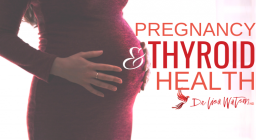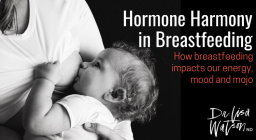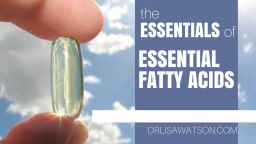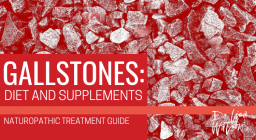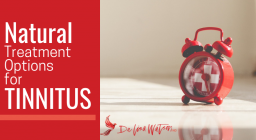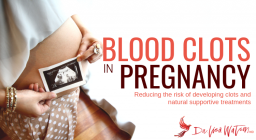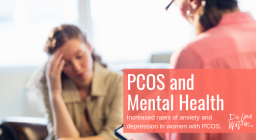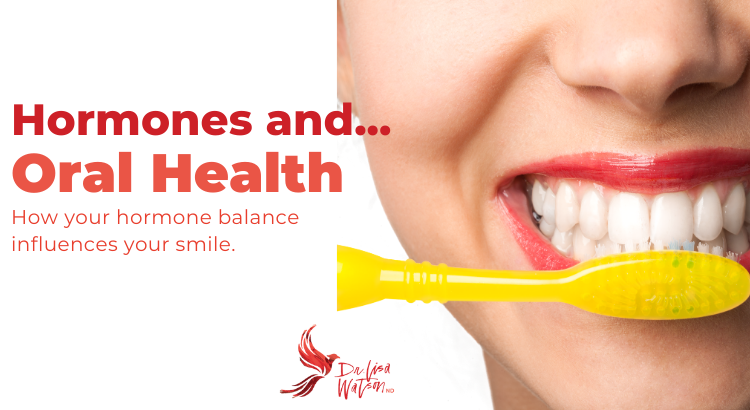
For real ladies. I learned a lot writing this one. I am one with the power of hormones, but still, I have much to learn. (Did I get a bit Star Wars-y there? Apologies.)
But seriously, there is no aspect of our health and wellbeing that our hormones don’t impact. So let’s break it down here and support our smile with our balanced hormones.
Progesterone and Oral Health
Oh progesterone, that great balancing hormone. It does wonder for our moods, helps to keep us calm and stable, and allows us to adapt to stress by supporting production of stress hormones. But it’s not all sunshine and lollipops with progesterone. That bitch has a dark side. 😉
Progesterone can increase the blood flow to our gums, causing our gums to become redder, more swollen, and bleed more easily. It can also increase the risk of developing swollen salivary glands and canker sores. Harsh.
Progesterone also encourages the accumulation of inflammatory cells, making it harder to heal our gums during times of our lives when progesterone levels are high (during the second half of our cycle, and during pregnancy.)
Hormone Cycles and Oral Health
The impact our hormones have on our oral health depends on where we are in our hormone lifespan. In particular, four big events are associated with increased incidence of gingivitis (inflammation of our gums), so much so that they are actual medical diagnoses: puberty-associated gingivitis, menstrual cycle-associated gingivitis, pregnancy-associated gingivitis, and menopausal dry mouth.
Puberty Gingivitis
As if puberty wasn’t hard enough. Nothing says “I’m reaching sex hormone maturity” like bleeding gums. Peaking around 12 years for girls, and 13 for boys, the changes are thought to be due to changes in the bacteria found in the mouth, particularly a friendly sounding bacteria by the name of Prevotella intermedia.
Menstrual Cycle Gingivitis
Worse around ovulation and in the second half of the menstrual cycle (when progesterone levels are high), this impact is most pronounced in women who already have some degree of gingivitis. Partially due to the increased blood flow to the gums from progesterone, and partly due to hormonal changes on bacteria in the mouth, premenstrual gingivitis is a real deal (along with the other 150 symptoms of PMS.)
Pregnancy Gingivitis
There is no time in a woman’s life when her progesterone is higher than during pregnancy. And as we now know, progesterone can cause your gums to be swollen, and bleed more easily. As well, the hormone changes and shifts in our immune function also make us more susceptible to bacteria changes in our mouths during pregnancy. Your dentist may suggest more frequent cleanings during pregnancy to help out with this issue.
Menopause and… Oral Health
So menopause is going to be completely different than the three conditions listed above, all of which are associated with high levels of hormones. In menopause, the key hormonal change is low levels of hormones, most notably estrogen and progesterone. In menopause women can experience dry mouth and decreased saliva production, as well as a sensation of heat or burning in their mouth (an oral hot flash if you will). The drop in estrogen can also increase the risk of developing osteoporosis and periodontitis – an inflammation of the tissue around the teeth. These combined can lead to an increased risk of developing cavities, or of tooth loss. For women with significant osteoporosis, or at high risk for osteoporosis, bioidentical estrogen therapy can help to seriously reduce these risks.
Final Thoughts
Hormones impact everything. While our hormones are meant to shift throughout our lifetime, understanding the impact they have can help us prepare for unexpected changes in our health that may be the result of our hormones.
So brush your teeth at least twice per day, floss every day, and speak to your Naturopathic Doctor if you need more help for your oral health, or more support on your journey to balanced hormones.
P.S.
And ladies, just so you know how hard I work for you, to bring you sassy and fact-based information, check out this sentence from one of the studies I read in preparation for this article:
Estrogens can influence the cytodifferentiation of statified squamous epithelium, and the synthesis and maintenance of fibrous collagen.
The Influence of Sex Steroid Hormones on Gingiva of Women. E Markou, et al.
Boom. You’re welcome.
Selected References:
Eleni M, Boura E, Tsalikis L, and Konstantinides A. The Influence of Sex Steroid Hormones on Gingiva of Women. The Open Dentistry Journal, 2009, 3, 114-119 1874-2106/09 2009
DISCLAIMER
The advice provided in this article is for informational purposes only. It is meant to augment and not replace consultation with a licensed health care provider. Consultation with a Naturopathic Doctor or other primary care provider is recommended for anyone suffering from a health problem.


